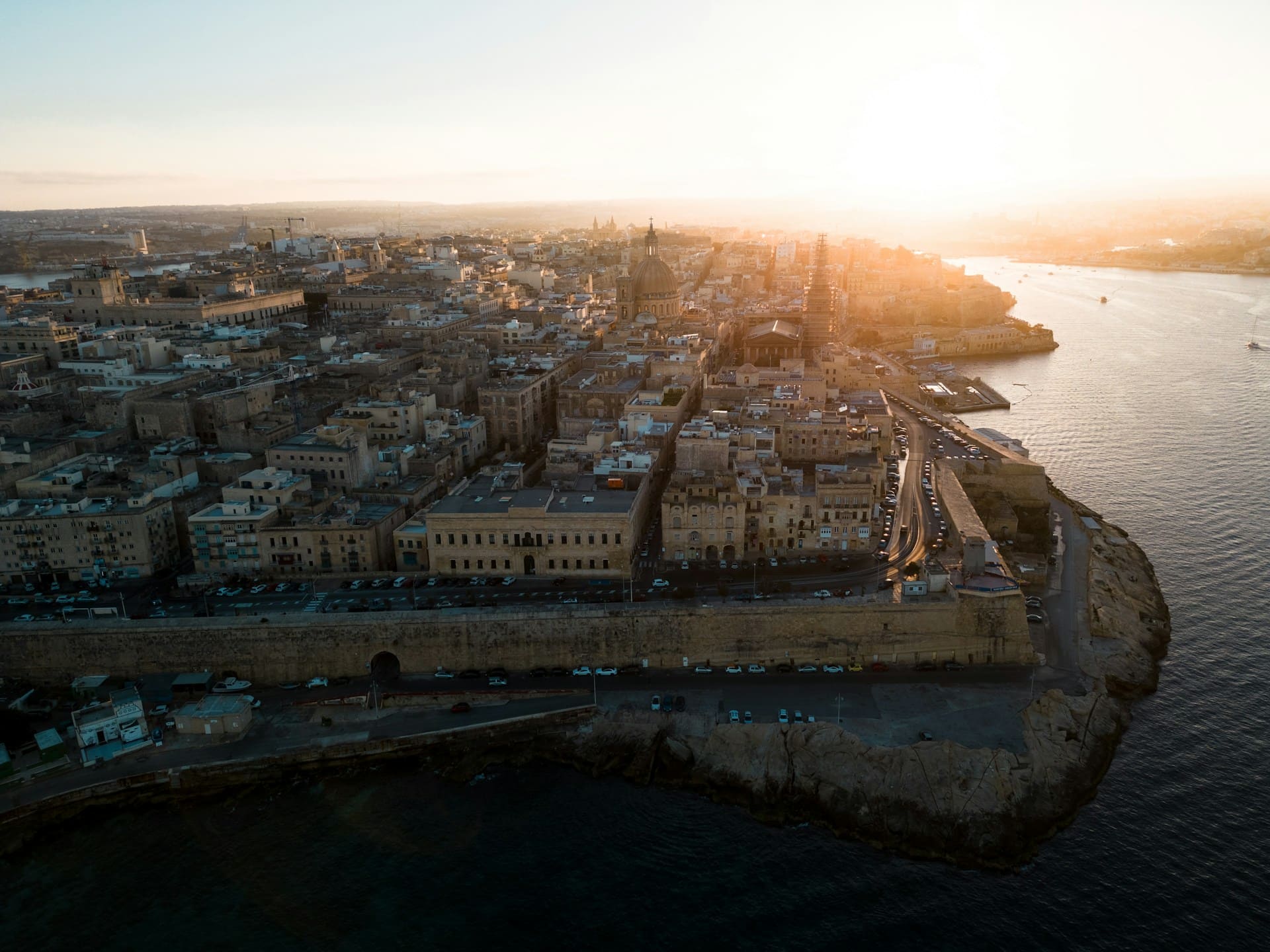How to Get a Job in Malta as an Indian Expat: A Step-by-Step Guide
Malta, known for its thriving economy, beautiful Mediterranean setting, and strong job market, has become an attractive destination for Indian professionals seeking career opportunities abroad. With growing industries like iGaming, technology, finance, and tourism, Malta offers a wealth of opportunities for skilled workers. However, navigating the job search, visa requirements, and work permits can be daunting.
This comprehensive guide will walk you through the entire process of getting a job in Malta as an Indian expat, from understanding the job market to applying for a work visa and securing employment.
Why Malta? Understanding the Benefits for Indian Expats
For Indian professionals, Malta offers a unique combination of career growth, lifestyle benefits, and an expat-friendly environment. Here are the top reasons why Malta is an ideal destination for Indian expats:
Booming economy: Malta's economy is one of the fastest-growing in Europe, with low unemployment and increasing demand for skilled workers in sectors like IT, iGaming, and finance.
Multicultural environment: Malta is home to a diverse expat community, and English is widely spoken, making it easier for Indian professionals to integrate into both the workplace and society.
Career opportunities in high-demand sectors: Indian professionals with expertise in IT, engineering, finance, and customer support will find plenty of job opportunities in Malta's booming industries.
Work-life balance: Malta offers a relaxed Mediterranean lifestyle, with employers placing high value on work-life balance and offering flexible working hours in many sectors.
Job Sectors in Malta for Indian Expats
Before diving into the job search, it's important to understand which industries in Malta are most likely to hire Indian expats. Here are the top sectors where Indian professionals can find employment:
1. iGaming and Betting
Malta is known as the global capital of iGaming, with hundreds of companies in the online casino, sports betting, and game development sectors. Positions in this industry range from customer support to more specialized roles such as software development, product management, game design, and compliance. Many Indian expats find exciting careers in this fast-paced and dynamic industry.
2. Technology and IT
Malta's growing tech sector is in constant need of skilled professionals, including software developers, data analysts, cybersecurity experts, and IT project managers. The demand for tech talent in Malta has opened the door for Indian expats with experience in these areas.
3. Financial Services
Malta's finance sector is thriving, with demand for roles in accounting, auditing, compliance, and risk management. Indian professionals with a background in finance and banking will find plenty of opportunities in this sector.
4. Hospitality and Tourism
Given Malta's popularity as a tourist destination, there is always demand for workers in the hospitality industry. Jobs in hotels, restaurants, and tourism services are readily available, especially for those with language skills or prior experience in the industry.
Securing a Work Visa: The Process for Indian Expats
For Indian nationals, securing a work visa and residence permit is essential to legally work and live in Malta. Here's a breakdown of the process:
Step 1: Securing a Job Offer
Before applying for a work visa, you must have a job offer from a Maltese employer. The employer will need to sponsor your visa application, and the job must be advertised locally to ensure no suitable EU/EEA candidates are available. You can start your job search through popular platforms like Jobhound, LinkedIn, or JobsPlus.
Step 2: Applying for a Single Work Permit
Once you have a job offer, your employer will need to apply for a Single Permit on your behalf. This permit allows you to work and reside in Malta and is valid for one year, with the possibility of renewal.
Documents required for the Single Permit:
Passport (valid for at least three months after your intended stay)
Job offer or employment contract from your Maltese employer
Proof of qualifications relevant to the job (degrees, certificates, etc.)
Police clearance certificate from India
Medical clearance showing you're fit for work
Proof of health insurance
Application process:
Your employer submits the work permit application to Identity Malta.
The process can take up to three months, so it's important to apply early.
Once approved, you can enter Malta with the visa and start working.
Step 3: Applying for a Residence Permit
After your work permit is approved, you'll need to apply for a residence permit if you plan to stay for more than 90 days. This is done through Identity Malta and will require proof of your employment contract and housing arrangements.
Tips for Writing a CV That Stands Out to Maltese Employers
To increase your chances of landing a job in Malta, it's essential to have a well-structured CV that highlights your qualifications and experience. Here are some key tips for tailoring your CV to the Maltese job market:
Keep it concise: Maltese employers prefer CVs that are clear, concise, and to the point. Aim for no more than two pages.
Highlight your skills: Focus on both technical skills and soft skills. Employers in Malta value communication and teamwork, so be sure to highlight any experience that shows these qualities.
Tailor your CV: Customize your CV for each job you apply for, focusing on relevant skills and experience.
Include a professional summary: Begin with a short paragraph that summarizes your key qualifications, experience, and why you're a great fit for the job.
List your qualifications: Include any degrees, certifications, or relevant training, especially if it's in-demand in your industry (e.g., IT certifications, financial qualifications).
Understanding the Work Culture in Malta
Working in Malta offers a unique blend of professional and cultural experiences. Here are some key aspects of Maltese work culture that Indian expats should be aware of:
Work-life balance: Maltese employers emphasize a healthy work-life balance, and you'll often find flexible working hours, especially in industries like tech and iGaming.
Language: While Maltese is the official language, English is widely spoken in professional settings, making it easier for Indian expats to integrate.
Team-oriented work environment: Collaboration is highly valued in Maltese companies. Expect to work closely with teams and contribute to a friendly, supportive workplace culture.
Punctuality and professionalism: Like many European countries, punctuality is important. Be sure to arrive on time for interviews and meetings.
Navigating the Job Search: Platforms and Resources
Finding a job in Malta as an Indian expat can be made easier by using the right resources and job platforms. Here are the top platforms to kickstart your job search:
Jobhound: A leading job board in Malta, offering opportunities across industries like iGaming, IT, sales, finance, and hospitality.
LinkedIn: A great platform for networking and finding job listings in Malta's professional sectors.
JobsPlus: Malta's official government job board, with hundreds of listings across industries.
Glassdoor: Browse job listings and company reviews to make informed decisions about your applications.
Tip: Set up job alerts to receive notifications when new positions matching your qualifications become available.
Salary Expectations and Cost of Living
Before accepting a job offer, it's important to have a clear understanding of both salary expectations and cost of living in Malta. While salaries can vary significantly depending on the industry, role, and level of experience, Malta offers competitive wages in sectors like iGaming, tech, and finance. However, the cost of living, particularly housing and utilities, is something to consider when negotiating your salary.
Salary Breakdown by Industry
iGaming: Salaries in Malta's iGaming sector range from EUR 20,000 to EUR 70,000 annually, depending on the position. Entry-level roles like customer support may start at the lower end of the scale, while experienced professionals in product management, game development, or compliance can command higher salaries.
IT and Tech: Malta's tech sector offers competitive salaries, with software developers, data analysts, and cybersecurity experts earning between EUR 25,000 and EUR 65,000 annually. Senior IT roles and specialists with in-demand skills can reach the upper end of the pay scale.
Finance: Finance professionals, such as accountants, auditors, and risk managers, can expect salaries ranging from EUR 30,000 to EUR 70,000 annually. Senior roles, such as CFOs or financial directors, tend to earn on the higher end of this spectrum.
Understanding the Cost of Living in Malta
While Malta's cost of living is generally lower than in many other European countries like Germany or France, it's important to consider specific expenses such as rent, utilities, groceries, and transportation.
1. Housing Costs
Rent: Housing is one of the largest expenses for expats in Malta. Rent prices vary depending on location, with the most expensive areas being Sliema, St. Julian's, and Valletta. For a one-bedroom apartment:
In the city center, expect to pay between EUR 800 and EUR 1,200 per month.
Outside of the city center, rent can range from EUR 600 to EUR 900.
If you're relocating with family, larger apartments or houses can cost significantly more, with three-bedroom apartments in central areas starting at EUR 1,200 and upwards per month.
2. Utilities
Electricity, water, and heating: Monthly utility bills (electricity, water, and heating) typically range from EUR 80 to EUR 150 depending on usage, apartment size, and the time of year. Summers in Malta can be hot, and air conditioning may increase electricity costs during these months.
3. Groceries and Eating Out
Groceries: Basic groceries for a single person can range between EUR 250 and EUR 350 per month. If you're shopping at local markets and supermarkets, staples like bread, rice, vegetables, and meat are reasonably priced.
Dining out: Malta's restaurant scene is vibrant, and dining out can vary in cost. A meal at an inexpensive restaurant will typically cost around EUR 15 to EUR 20, while mid-range restaurant meals might cost EUR 30 to EUR 50 for two people.
4. Transportation
Public transport: Malta's public transport system is affordable, with monthly bus passes costing around EUR 26 for unlimited travel. Taxis and ride-hailing services like Bolt are also available, with rates varying by distance and time of day.
Owning a car: If you plan to drive, keep in mind that car ownership comes with costs such as fuel (approximately EUR 1.50 per liter), insurance, and maintenance. Parking in city centers can be limited, adding potential inconvenience.
Additional Costs to Consider
Health insurance: If your employer doesn't provide health coverage, you may need to purchase private health insurance, which can cost between EUR 300 to EUR 700 annually for basic coverage.
School fees (if you have children): While public education is free for residents, private international schools may charge tuition fees ranging from EUR 4,000 to EUR 10,000 per year, depending on the school and grade level.
Entertainment and lifestyle: Malta offers a range of activities, from beach outings to cultural festivals, and the cost of entertainment can vary. A cinema ticket typically costs EUR 8 to EUR 10, while gym memberships average around EUR 40 to EUR 60 per month.
Salary vs. Cost of Living in Malta
When evaluating a job offer in Malta, it's crucial to factor in both your potential earnings and the cost of living, particularly in relation to housing, utilities, and everyday expenses. While Malta offers a relatively affordable lifestyle compared to major European capitals, some areas, like rent and utilities, can still be significant.
For Indian expats, securing a job in iGaming, IT, or finance can offer a comfortable salary, but understanding the cost of living will help you better prepare for life on this beautiful Mediterranean island.
Conclusion: Your Path to Success in Malta
For Indian expats, Malta offers a wealth of opportunities in industries like iGaming, tech, finance, and hospitality. By understanding the work visa process, tailoring your CV, and leveraging job search platforms, you can position yourself for success in this vibrant Mediterranean job market.
Ready to start your job search in Malta? Join Jobhound and begin exploring the many opportunities waiting for you today.


